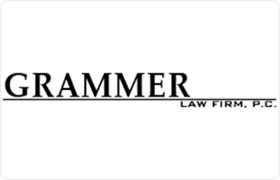 Georgetown County, SC Felony Lawyers
Georgetown County, SC Felony Lawyers
Sponsored Law Firm
-
 x
x

Click For More Info:
-
Grammer Law Firm, P.C.
1700 Oak St Conway, SC 29526» view mapCriminal Proudly Serving Horry County
You need an attorney with criminal defense knowledge who will vigorously protect your rights and interests.
800-957-8401
Not enough matches for Georgetown Felony lawyer.
Below are all Georgetown lawyers.
Sponsored Lawyers
1-10 of 38 matches
Accident & Injury, Divorce & Family Law, Criminal, Class Action
Bill Hopkins was born and raised in Bishopville, South Carolina. He attended North Carolina State University where he received his B.S. degree in Textile Chemistry in 1988. After graduation, Bill worked for nearly three years for Springs Industries, Inc., a large textile company, at a dyeing and finishing plant in Lancaster, South Carolina. Bill was working as a third shift superintendent at the time he was accepted into law school at the University of South Carolina. During law school, Bill served as the Research Editor for the South Carolina Environmental Law Journal. It was also during law school that he began clerking for the law firm of Whaley, McCutchen, Blanton & Rhodes, LLP, one of the oldest and most prestigious litigation firms in South Carolina, which had originally been founded in 1936. Bill continued to work at the firm after graduation and ultimately became a partner in the firm and then was elected Managing Partner in 2005. Bill and the firm were selected by South Carolina Attorney General Henry McMaster to represent the State of South Carolina in lawsuits brought against several pharmaceutical companies regarding their reporting of false and inflated prices for drugs which resulted in overpayments by the State Medicaid and State Health Plan programs, known as the AWP litigation. Bill remained as the Managing Partner until December 31, 2007 when the firm dissolved after 71 years of continuous practice. Bill founded and started a new law firm called McCutchen Blanton Hopkins & Campbell, LLP, where he continued to practice with Thomas McCutchen and Hoover Blanton, two of the most well known leaders and stewards of the South Carolina Bar. Bill ran this law firm until November 1, 2010, when he joined the national law firm Beasley Allen Crow Methvin Portis & Miles, P.C. in Mongomery, Alabama in the Consumer Fraud section with an emphasis and focus on class action litigation. Bill has been active in various bar associations and organizations, including the South Carolina Bar. At the time he joined Beasley Allen, Bill was serving on the Professional Responsibility Committee and the Conventions Committee of the South Carolina Bar. Bill is currently serving as the Co-Chairman of the Class Action Litigation Group of the American Association for Justice. Bill served as the Chairman of the Employment Rights Section of the South Carolina Association for Justice for three years. In 2010 Bill Hopkins was elected to the South Carolina Chapter of the American Board of Trial Advocates (ABOTA), which is a distinct recognition and privilege. ABOTA is a national organization of both plaintiff and defense trial attorneys which is committed to the preservation of trial by jury. To be eligible for consideration, an attorney must have tried at least 20 civil jury trials to jury verdict as lead counsel. Bill has tried over 70 civil cases to jury verdict as sole or lead counsel, in areas such as personal injury, business torts, fraud, products liability, trade secrets, unfair trade practices, insurance matters and employment. Bill has also had an active appellate practice and has argued 8 cases before the Fourth Circuit Court of Appeals, including an en banc argument in the case of Ocheltree v. Scollon Productions, Inc., a seminal case regarding the law of sexual harassment, in which many organizations (including the EEOC) made appearances and submitted amicus briefs, and which case was the subject of numerous articles, including an article in the New York Times. Bill has also argued several cases before the South Carolina Court of Appeals and the South Carolina Supreme Court. Bill has also developed a successful class action practice, being appointed by several different courts as lead counsel or liaison counsel in many different class action cases.
(more)


 William Grammer Myrtle Beach, SC
William Grammer Myrtle Beach, SC AboutGrammer Law Firm, P.C.
AboutGrammer Law Firm, P.C. Practice AreasExpertise
Practice AreasExpertise

